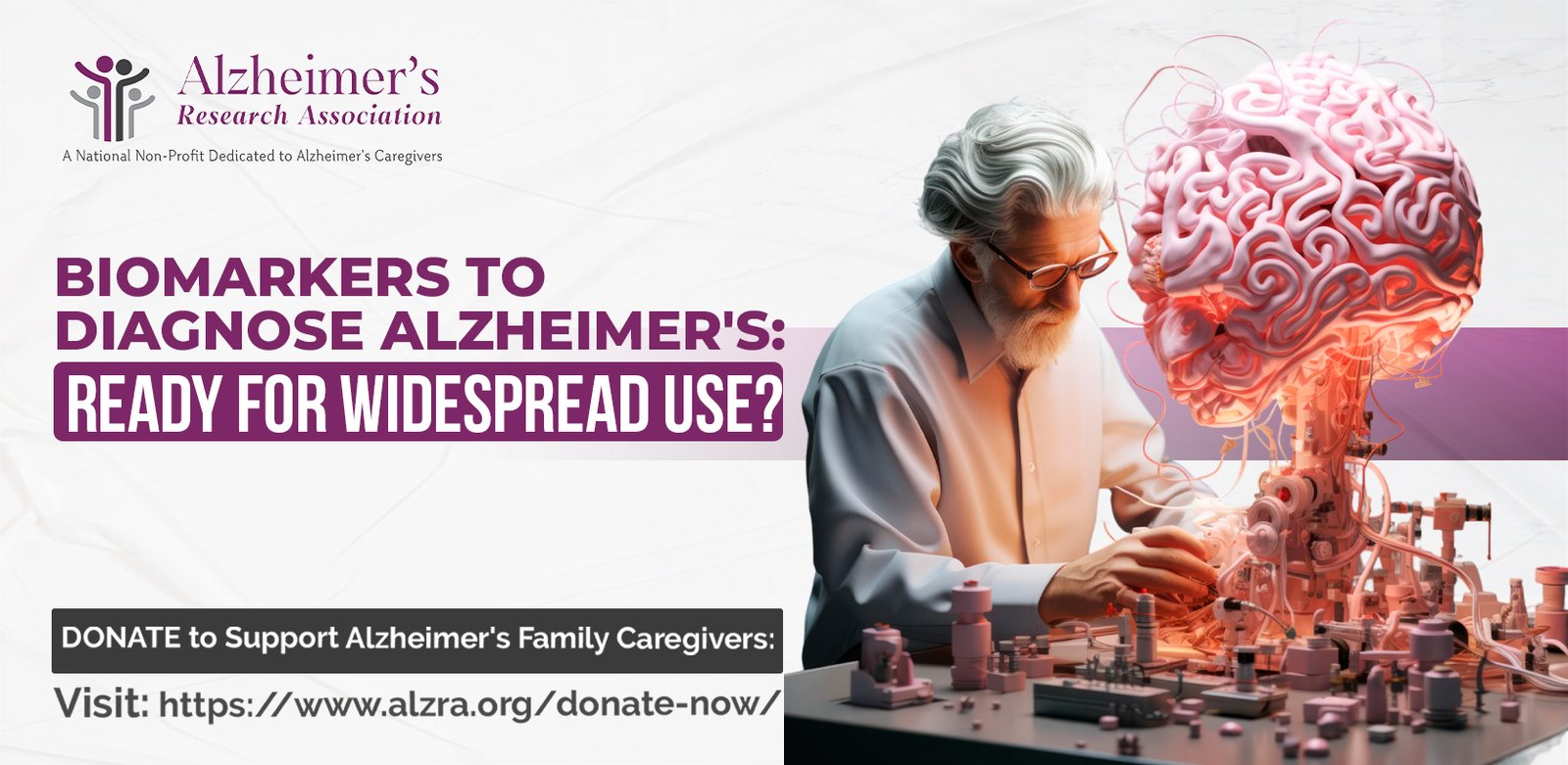About 7 million people are living with Alzheimer’s, and this number is expected to rise to approximately 13 million by 2050 [1]. Despite plenty of research, scientists are still yet to discover the exact cause and treatment of this devastating disease.
Scientists are constantly trying to discover the precise underlying causes, treatment, and ways to conveniently and non-invasively diagnose the disease.
For many years, Alzheimer’s was identified clinically and diagnosed via autopsy. A blood test that can now determine the pathology of the disease with a fair degree of accuracy may find extensive application in clinical settings.
While Alzheimer’s biomarkers can detect the levels of tau and amyloid in the brain, important questions remain regarding prediction accuracy, appropriate use for patients with other illnesses that may change pathology, and the best way to use the data from biomarker testing.
Nicole R. Fowler, Ph.D., an applied aging researcher from the Regenstrief Institute and Indiana University School of Medicine, and Michelle Mielke, Ph.D., chair of the Department of Epidemiology and Prevention at Wake Forest University School of Medicine, have highlighted considerations to be addressed in advance of the widespread adoption of Alzheimer’s biomarker testing in real-world clinical settings in a review article underscoring the issues related to use of this new diagnostic tool.
The journal Nature Reviews Neurology published the review article [2].
What did the Authors Highlight
The authors point out that biomarkers offer a hitherto unheard-of chance to increase the precision and timeliness of Alzheimer’s diagnosis at the population level, particularly in settings with limited resources. However, they advise careful consideration of various criteria before broad implementation.
According to Dr. Fowler, blood can be collected for biomarker testing and examined to detect amyloid or tau in the brain, the fundamental pathologies of Alzheimer’s. Blood-based biomarkers can help diagnose the disease, but there is still a need to develop suitable use guidelines for them, even though they are a far more scalable and less invasive test than collecting cerebrospinal fluid.
Biomarkers may be a highly relevant test early in the cognitive change process to discover what is generating cognitive issues, assisting patients in slowing the disease and being assessed for treatment.
Michelle M Mielke, the review’s other author, stated that much of the current research on Alzheimer’s disease blood-based biomarkers has been undertaken on reasonably healthy, well-educated, and well-characterized individuals from specialty memory clinics.
Understanding how to use these blood biomarkers most effectively in older persons with various chronic disorders and cognitive impairment, including members of underrepresented minority groups, requires an extensive amount of research. There are ethical problems to address, as well as several chronic illnesses that may influence biomarker interpretation and result in false positive or false negative diagnoses.
Both authors highlighted the significance of taking into account a variety of confounding factors when interpreting biomarker testing in the review article, including patient sex, race or ethnicity, and the co-existence of chronic medical illnesses that are frequent in older persons.
They reported that the attributes of usual primary care patients with cognitive impairment frequently vary from the patient populations used in Alzheimer’s biomarker research studies, emphasizing the need for population health studies to be more representative of individuals seeking diagnoses to better understand how to apply this new technology in the primary care setting.
The authors ended by considering broader problems such as ethics, patient and provider preference, accidental findings, and handling uncertain outcomes. They emphasized the necessity of limiting the potential for false-positive or false-negative results due to faulty testing accuracy.
Key Points Noted by the Authors
Here’s the overview of the major points that Drs. Fowler and Mielke noted in their review.
-
Accurate Diagnostic Test
Blood biomarkers are a clinically useful and accurate means of diagnosing Alzheimer’s in patients exhibiting cognitive decline, as numerous studies have shown [2, 3].
-
Examination of Biomarkers in Broader Populations
Most previous studies have concentrated on specialty clinic groups, such as neurology. They are not universal to typical primary care patients with cognitive impairment symptoms, so there is an urgent need to examine these biomarkers in this population [4].
-
Considering Other Chronic Diseases
Chronic kidney illness, obesity, cardiovascular diseases, and some drugs might raise or diminish Alzheimer’s blood biomarker levels and must be considered to avoid false-positive or false-negative diagnoses. Diagnosing Alzheimer’s in older persons requires an understanding of how to analyze these levels in the context of several chronic illnesses.
-
Gender and Race may have a Role
Gender and race or ethnicity may also have an impact on Alzheimer’s disease levels, though research on these correlations has been inconsistent.
-
Test to be Reviewed in Tandem with Other Symptoms
A positive blood biomarker test may suggest Alzheimer’s presence, but it could also be an incidental result. Thus, the test must be reviewed in conjunction with other symptoms.
-
A Need to Devise Policies
Policies must be in place to ensure that patients with favorable outcomes added to their medical records do not lose their insurance, disability, or other rights.
Alzheimer’s Research Association is a non-profit organization dedicated to helping caregivers of Alzheimer’s disease and dementia. We provide the latest information and news about the illness and helpful tips to help caregivers cope with their daily caregiving challenges. We realize the most important thing that a caregiver needs is financial assistance. Therefore, we provide grants to caregivers to ease their financial burden. Caregivers can apply for grants here: https://www.alzra.org/grant-applications/.
You can also help caregivers in their endeavor by donating as much as possible: https://www.alzra.org/donate-now/
References
- Alzheimer’s Disease Facts and Figures. Alzheimer’s Association. https://www.alz.org/alzheimers-dementia/facts-figures. Accessed: 7th October, 2024.
- Mielke, M.M. and Fowler, N.R., 2024. Alzheimer disease blood biomarkers: considerations for population-level use. Nature Reviews Neurology, pp.1-10.
- A New Blood Test Could Detect Early Symptoms of Alzheimer’s. Alzheimer’s Research Association. https://www.alzra.org/blog/a-new-blood-test-could-detect-early-symptoms-of-alzheimers/. Published Online: 28th February, 2024. Accessed: 7th October, 2024.
- Preparing for widespread use of biomarkers to diagnose Alzheimer’s disease. Medical Xpress. https://medicalxpress.com/news/2024-09-widespread-biomarkers-alzheimer-disease.html. Published Online: 18th September, 2024. Accessed: 7th October, 2024.



